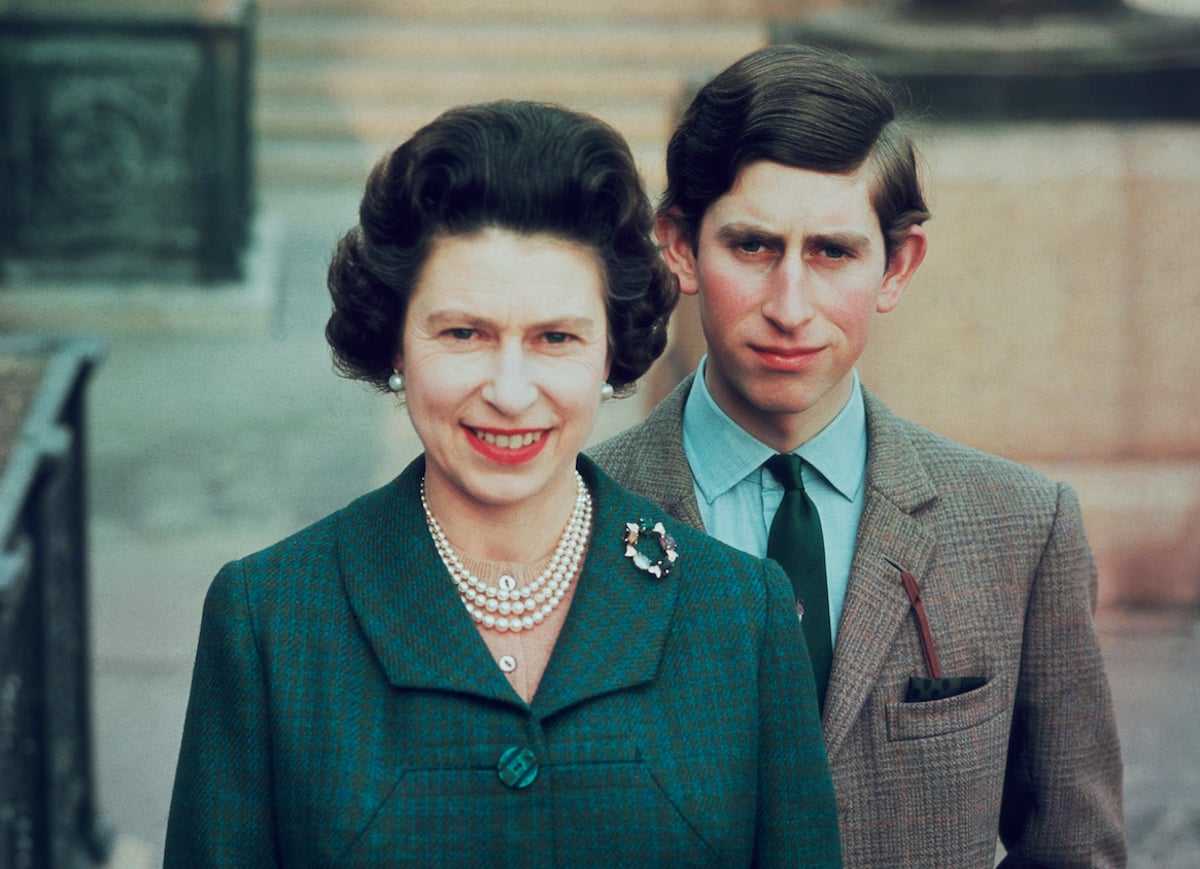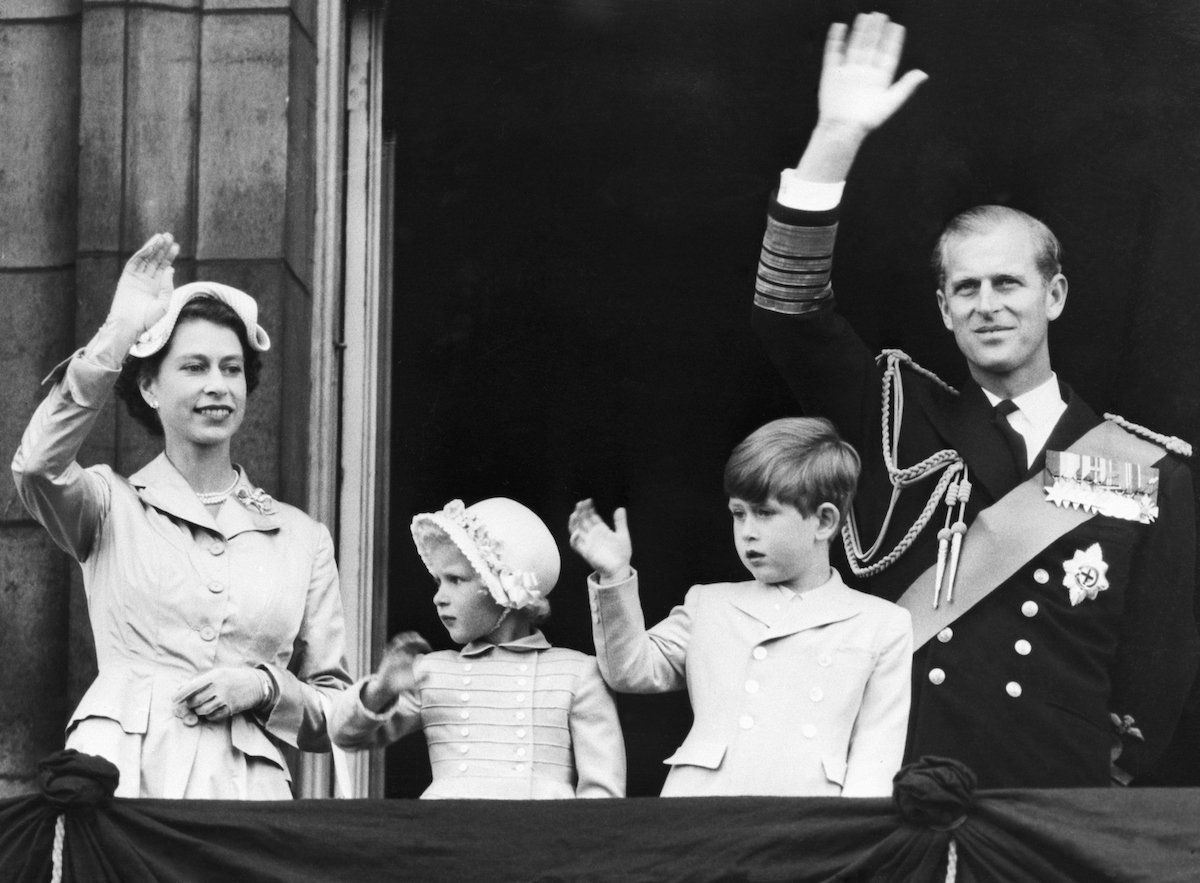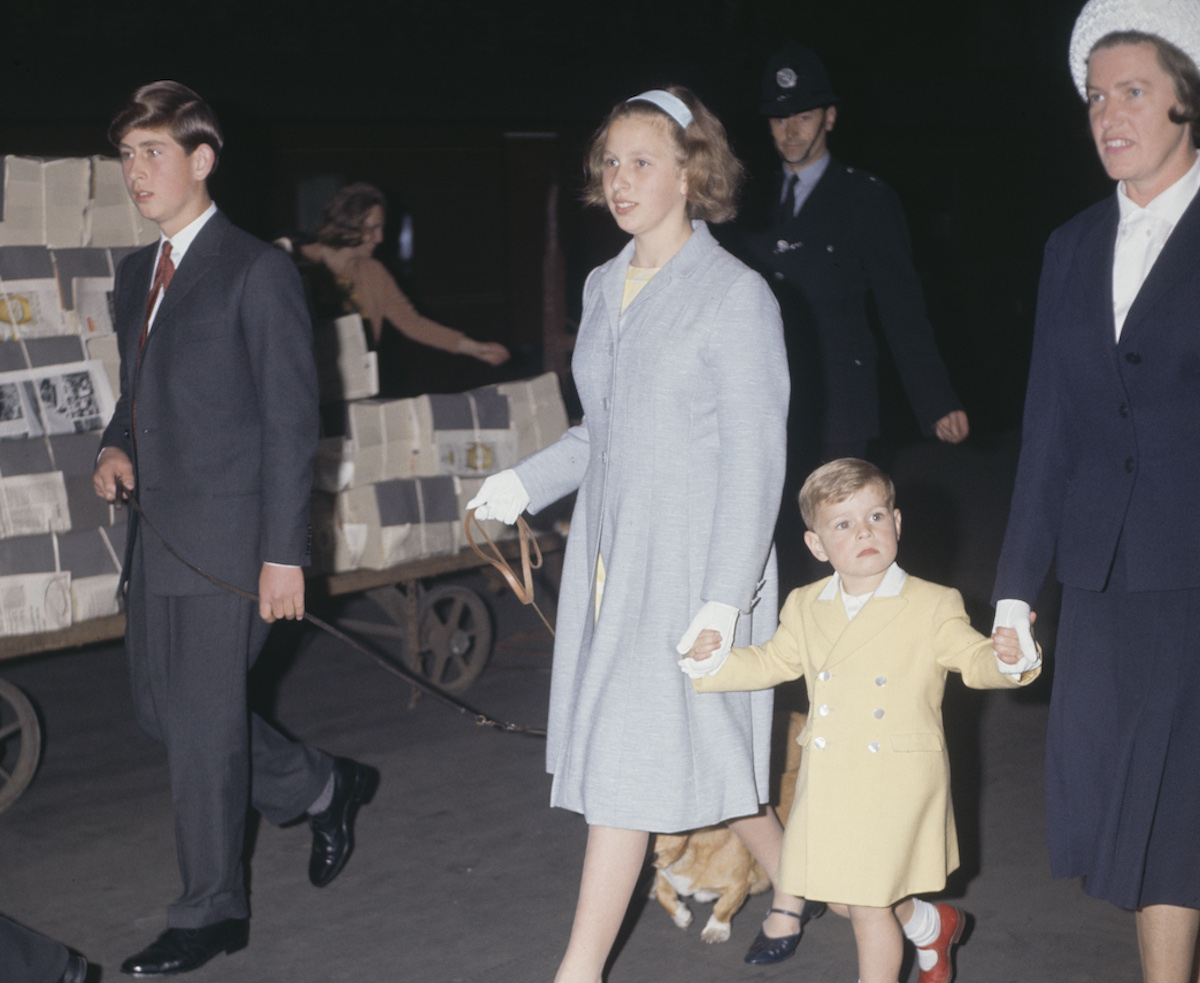
King Charles’ Childhood Photo With Queen Elizabeth Details Their ‘Heartbreaking’ Relationship, Expert Says
As the saying goes, a picture’s worth a thousand words. What about a picture of King Charles III and Queen Elizabeth II? Perhaps even more. Multiple historians and authors consider one image to be especially telling. Ahead, how a childhood photo of King Charles encapsulated his “heartbreaking” relationship with the queen.
King Charles III had a ‘really heartbreaking’ childhood, author says

As a member of the royal family and, of course, heir to the throne, one might not expect the king’s childhood to have been ordinary. It was certainly not average by any means. However, it was, according to author Christopher Andersen, rather bleak.
“Charles’ childhood is tragic in a way and really heartbreaking,” he said on the Nov. 4 episode of The Royal Report podcast. “From the beginning, he was an abandoned and lonely little boy.”
The author of The King: The Life of Charles III noted the now-73-year-old didn’t spend much time with his parents. He saw the queen and Prince Philip “twice a day for 15 minutes. Other than that, [he had] almost no contact with his mother.”
The king’s formative years were also a crucial period in the queen’s reign, royal historian Carolyn Harris told Sky News. She described it as a time when “there was a sense” Queen Elizabeth, early in her reign, had to “prove herself on the world stage.”
As a result, the author of Raising Royalty: 1,000 Years of Royal Parenting said, there were “extended periods of time when she didn’t see her children.”
Queen Elizabeth ‘shoves’ young King Charles aside before treating him like a ‘40-year-old man,’ author says

Andersen continued, discussing a childhood photo of King Charles. Specifically, one from 1954 when Queen Elizabeth and Philip arrived at Paddington Station in London, England.
“There’s a really touching photograph from years ago where Queen Elizabeth gets back from her first tour of the commonwealth and she’s been gone for months,” he began.
King Charles, then only 5 years old, “rushes up to hug her and she actually shoves him aside because she has dignitaries to greet,” Andersen said. “Only when she finally does acknowledge him she reaches down and shakes his hand like he was a 40-year-old man.”
“That famous image of the Queen shaking hands with Charles — not rushing to hug him — as Diana did when she returned from tours, says a lot,” Sarah Gristwood, royal historian and author, told Sky News.
Young King Charles got ‘support and comfort’ from his nanny, biography explains

1994’s The Prince of Wales: A Biography describes nanny Mabel Anderson as a prominent figure in the king’s childhood.
Author Jonathan Dimbleby wrote (via Newsweek): “For Prince Charles, who had already discovered that only in the nursery could he always be assured of a cuddle, Mabel Anderson became ‘a haven of security, the great haven’ to whom he invariably turned first for comfort and support.”
“With parents who were often away, and were not, in any case, given to displays of affection even in private, Mabel Anderson came to assume a vital role in the Prince’s life,” Dimbleby explained.
“The adoration of the young child for his nurse (who was almost the same age as the Queen) led friends and courtiers to conclude that Mabel Anderson had become in effect ‘a surrogate mother,’” he continued. Meanwhile, he wrote, it became “clear” to the Duke of Edinburgh the nanny was the “most important influence” on his son.



